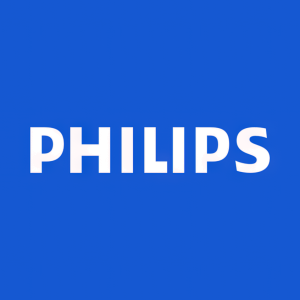World Stroke Organization and Philips call for action to expand access to life-saving stroke care
Rhea-AI Summary
Philips (NYSE: PHG) and the World Stroke Organization (WSO) have published a joint policy paper calling for a revolution in stroke care. The paper proposes six policy interventions to improve outcomes and reduce costs in stroke treatment. Key recommendations include expanding infrastructure for essential stroke services and mechanical thrombectomy, a highly effective minimally invasive procedure for removing blood clots in major strokes.
The paper highlights that stroke affects an estimated 12 million people globally each year, with direct and indirect costs around $900 billion annually. Despite proven treatments like mechanical thrombectomy, access remains For instance, only about 7% of ischemic stroke patients in Europe received this treatment in 2019.
The initiative aims to address the significant burden of stroke on patients, healthcare systems, and society by promoting coordinated investment in care, treatment, infrastructure, and effective policymaking.
Positive
- Partnership between Philips and World Stroke Organization to improve global stroke care
- Proposal of six policy interventions to enhance stroke treatment outcomes and reduce costs
- Potential for significant economic benefits and healthcare system savings through improved stroke care
Negative
- Current access to effective stroke treatments like mechanical thrombectomy
- High global burden of stroke with 12 million people affected annually
- Estimated $900 billion annual cost of stroke, expected to double in 25 years
News Market Reaction – PHG
On the day this news was published, PHG declined 1.03%, reflecting a mild negative market reaction.
Data tracked by StockTitan Argus on the day of publication.
September 10, 2024
- Joint policy paper provides recommendations for effective policymaking and investments in stroke centers with specialized treatments to improve health outcomes and reduce costs
- Timely access to mechanical thrombectomy – a proven minimally invasive therapy to remove the blood clot that caused the stroke – has the potential to revolutionize treatment for major ischemic strokes, but the procedure remains the exception rather than the norm
Amsterdam, the Netherlands – Royal Philips (NYSE: PHG, AEX: PHIA), a global leader in health technology, and the World Stroke Organization (WSO), the world’s only global non-governmental organization focused on stroke, today published a policy paper calling for a revolution in stroke care to make a real difference to the lives of millions and bring significant economic benefits worldwide.
A stroke is typically an acute event, mostly caused by a blockage in a blood vessel in the brain that prevents adequate blood supply to brain tissue and leads to permanent loss of brain cells. It is a leading cause of disability and death worldwide, affecting an estimated 12 million people globally every year, including an increasing number of young people. The direct and indirect costs are conservatively estimated to be around USD 900 billion annually and are expected to almost double over the next 25 years.
Thanks to new technologies, procedures and clinical insights, stroke may be prevented, treated and even reversed if treatment is initiated rapidly. However, despite a strong evidence base, there is insufficient focus on healthcare expenditure and research funding to advance stroke care. As a result, access to timely treatment remains limited and huge disparities in stroke care persist.
The joint WSO-Philips policy paper, which is accompanied by an editorial in The Lancet Neurology and aligned with recent World Health Organization (WHO) guidance, proposes six policy interventions to improve outcomes, and reduce direct costs with substantial potential savings, releasing essential resources for other priorities across struggling healthcare systems:
1. Set targets and quality indicators, assess current gaps and prioritize stroke care in global, national, and regional health plans.
2. Expand and invest in infrastructures for essential stroke services, including stroke units and intravenous thrombolysis.*
3. Expand and invest in (capital) infrastructures for advanced stroke services: mechanical thrombectomy.**
4. Increase the necessary skills in the health workforce.
5. Make sure that payment models provide adequate reimbursement of essential and advanced stroke care.
6. Build a strategy to actualize the potential savings of essential and advanced acute stroke care.
The joint WSO-Philips policy paper entitled ‘Time for a revolution in stroke care’ can be downloaded here.
‘Time is brain’ is the mantra in stroke care, because every minute saved when treating a major stroke results in millions of saved brain cells. Investing in stroke centers and WHO recommended treatments including mechanical thrombectomy, a minimally invasive technique for removing the blood clot from the brain artery that caused the stroke, has the potential to improve hundreds of thousands of lives. Clinical trials show that mechanical thrombectomy is a highly effective treatment for the most debilitating strokes, and if treated in time, the impact is such that major strokes have become ‘curable’.
Yet, access to thrombectomy remains the exception rather than the norm in global stroke care. For example, an average of around
Professor Sheila Martins, President of the World Stroke Organization, said: “The impact of thrombolysis and thrombectomy on stroke patient outcomes has been established for more than a decade. More recent research has also demonstrated the cost-effectiveness of these treatments in low-income, middle-income and high-income countries. Investing in acute stroke care provides governments with an unmissable opportunity to reduce the burden of stroke to individuals and society and to deliver on their UN SDG3 commitment. The time to act is now.”
Carla Goulart Peron, Philips’ Chief Medical Officer, said: “Stroke is a leading cause of death and disability worldwide. The burden of stroke on patients, their families, the healthcare system, and society, is huge. The time is now for a coordinated approach to revolutionize stroke care, bringing together investment in care and treatment, infrastructure, awareness and a focus on effective policymaking. The benefits are significant, both for healthcare systems and societies, and most importantly in delivering better care for millions of patients worldwide.”
Philips and the WSO signed a two-year partnership in October 2023 focused on advocacy, education, and raising awareness of stroke as a global healthcare challenge. In May of this year, Philips supported the WSO side-event at the 77th World Health Assembly (WHA) entitled United in Action to Transform Stroke Care, which was the first ever WHA satellite session dedicated specifically to stroke.
* In an essential stroke center, acute stroke care is provided by a multidisciplinary team working according to acute stroke care protocols. This includes intravenous thrombolysis, the injection of medication to dissolve the blood clot that caused the stroke. This is the current most common acute stroke treatment.
** An advanced stroke center offers all the services provided at essential stroke centers plus mechanical thrombectomy, a minimally invasive therapy for removing the blood clot that caused the stroke.
For further information, please contact:
Joost Maltha
Philips External Relations
Tel: +31 6 10558116
Email: joost.maltha@philips.com
About Royal Philips
Royal Philips (NYSE: PHG, AEX: PHIA) is a leading health technology company focused on improving people's health and well-being through meaningful innovation. Philips’ patient- and people-centric innovation leverages advanced technology and deep clinical and consumer insights to deliver personal health solutions for consumers and professional health solutions for healthcare providers and their patients in the hospital and the home. Headquartered in the Netherlands, the company is a leader in diagnostic imaging, ultrasound, image-guided therapy, monitoring and enterprise informatics, as well as in personal health. Philips generated 2023 sales of EUR 18.2 billion and employs approximately 68,700 employees with sales and services in more than 100 countries. News about Philips can be found at www.philips.com/newscenter.
About the World Stroke Organization
The World Stroke Organization (WSO) is the world’s only global NGO with a sole focus on stroke. It is committed to reducing the global burden of stroke through advancing access to effective prevention, treatment, rehabilitation, and support. WSO is a membership organization and represents over 50,000 stroke experts in every global region. WSO’s 100 Society Members represent international, regional and national scientific, medical and survivor organizations. WSO has United Nations ECOSOC accreditation and is in official relations with the World Health Organization (WHO). WSO works with its members and stakeholders to reduce the global burden of stroke, providing technical support and driving engagement of key decision-makers to advance implementation of effective systems of care.
Attachment








